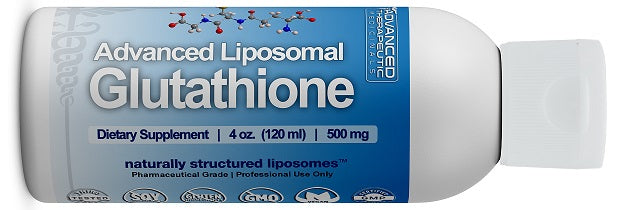reprinted from Generation Rescue
http://www.generationrescue.org/latest-news/meet-glutathione-the-bodys-most-powerful-anti-oxidant/
Meet Glutathione: The Body’s Most Powerful Antioxidant
JANUARY 11, 2017
By Dr. David Foss, D.C.
It has been known that one of the major contributors to autism spectrum disorders is toxicity. Heavy metal toxins like mercury, aluminum (found in vaccines), cadmium and lead are some of the most poisonous chemicals found on earth and are especially devastating to the brain and nervous system. Along with heavy metal toxins, a sharp increase in environmental toxins found in our food and water supply, household cleaning supplies, personal care products, medications and so on, equals a recipe for disaster. These toxins cause oxidative stress and inflammation that not only damage brain cells and upset the delicate balance of neurotransmitters in the brain; they can also affect other systems of the body as well, including the digestive and immune system. Call glutathione to the rescue!
Glutathione (GSH) is a substance found in every cell in the body but is concentrated in the liver. GSH has several important functions in the body. GSH helps the body repair damaged DNA, which is extremely important in health and longevity. GSH is necessary for the immune system to function properly. Both divisions of the immune system, cellular and humerol (also called Th1 and Th2) are greatly enhanced when sufficient quantities of glutathione are present. Glutathione is the body’s most powerful antioxidant. In fact, it is nicknamed the “Master Antioxidant”. Because of its antioxidant power, glutathione has amazing anti-aging benefits. GSH protects the skin against oxidative damage, which leads to wrinkles and helps eliminate age spots, therefore keeping the skin looking young. Glutathione is a powerful treatment for irritable bowl syndrome, which affects many children with autism. Lastly, GSH is a potent heavy metal cleanser. It is involved with cellular response, transport and excretion of toxic heavy metals. Glutathione and autism made the headlines a while ago with the publication of a research study by Dr. S. Jill James showing that children with autism have very low levels of glutathione.
Under healthy conditions, and in a healthy environment, our bodies would be able to produce plenty of GSH to meet our daily needs. But today’s lifestyles of high stress, toxicity, certain medications, alcohol, caffeine and processed foods deplete our body’s supply. However, there are several ways to increase the levels of glutathione. GSH is made up of three amino acids called glutamate, glycine and cysteine. In our diets we can increase these GSH building blocks by eating more cysteine-rich foods like eggs, garlic, onions and whey protein. Making whey protein smoothies is a great way to increase glutathione when dealing with picky eaters. Eating more vegetables like asparagus, broccoli, cauliflower, avocado and squash also increase GSH. In addition to eating glutathione-rich foods, here are four more ways to get the raw materials you need: N-acetyl-cycteine (NAC), alpha-lipoic acid (ALA), selenium and vitamin C. Another way to increase GSH is by injection. This way is very effective, however is also very expensive and time consuming. A powdered glutathione supplement is NOT effective as the digestive system will destroy the molecule and nothing will be absorbed into the body. A very simple and effective way to increase GSH is by taking an oral supplement, particularly liposomal glutathione. Liposome capsules protect the glutathione from the digestive process and allow it to be absorbed into the cells. Liposomes allow for intravenous-like levels of GSH without the injection. Coffee enemas have also shown to increase glutathione levels, however, this is an option for adults only.
Click Here to Try our Brand of Liposomal Glutathione for 50% OFF on Amazon!!





